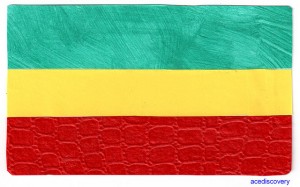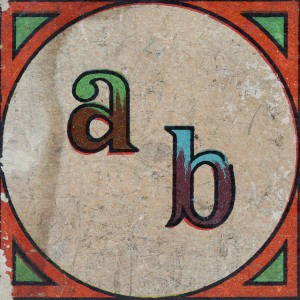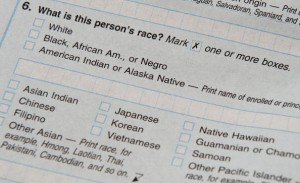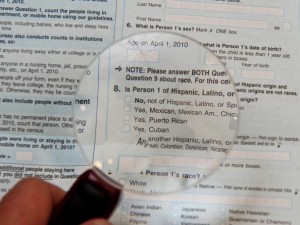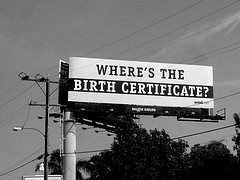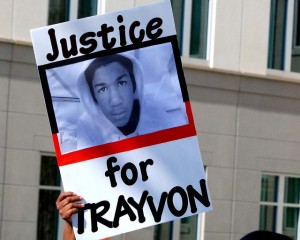
Werth Media / Flickr
A photo of Trayvon Martin appears on a protester's sign during a March 19 rally in Sanford, Fla.
A national debate about racism in the criminal justice system has been reignited by the Feb. 26 killing of an unarmed black teenager in Florida by a non-black man who hasn’t been charged with a crime.
Here’s what happened, according to news reports and newly-released 911 recordings: Trayvon Martin, 17, was walking from a convenience store to his father’s house in a gated community in Sanford, Fla. That’s when Neighborhood Watch volunteer George Zimmerman, 28, spotted him. Zimmerman called 911, reporting a seeing a suspicious person. “This guy looks like he’s up to no good or he’s on drugs or something,” Zimmerman said to the dispatcher, and began following Martin. A struggle ensued and Martin, unarmed, was fatally shot in the chest. Zimmerman claims self defense and hasn’t been charged with a crime. Federal authorities announced late Monday that they would launch a full-scale criminal investigation following protests over local police’s handling of the case.
The narrative appears to be a sadly familiar one, of seemingly double standards, of little to no punishment when the shooter is white and when the person shot is black. Benjamin Crump, the Martin family’s lawyer, has said that if the roles were reversed and Trayvon Martin was the shooter of a white man, an arrest would have been made immediately.

Orange County Jail
A 2005 photo of George Zimmerman.
But a letter from Zimmerman’s father, Robert Zimmerman, to the Orlando Sentinel complicates the narrative. Robert Zimmerman writes that his son, George, is “a Spanish speaking minority.” (He also goes on write that his son has black family members. “The media portrayal of George as a racist could not be further from the truth,” the letter states.).
Orlando Sentinel reporter Rene Stutzman has been closely following the case and had an exclusive interview with Robert Zimmerman. Stutzman tells DCentric that George Zimmerman’s father is white and his mother is Hispanic.
Does Zimmerman’s Hispanic heritage change the larger story? Maybe not, but it does demonstrate that America’s longstanding black-white debates about racism have been complicated by the country’s shifting demographics. Racial identity for Hispanics is much more fluid than for other groups. Many Hispanic immigrants feel they are accepted as white by larger society, but those with darker complexions still face plenty of discrimination, according to a 2010 American Sociological Association report. In other words, a light skinned Hispanic, such as Zimmerman, may be treated as a white man by larger society, while a darker Hispanic may be treated as black. And when it comes to racial profiling, anyone can discriminate against anyone else. A person can even be sued for racially discriminating against another person of the same race.
In the end, no matter how many debates about race this case spurs, one thing won’t change: a teenager who was carrying little more than a bag of Skittles and a can of iced tea is dead. And for now, a community is torn apart as so many questions remain unanswered.






